Dubai is known for its luxurious skyscrapers, stunning architecture, and booming real estate market. International real estate investors are increasingly turning to Dubai. It is the perfect site to launch a real estate firm because of its advantageous location, first-rate infrastructure, and alluring tax policies.
To start a real estate business in Dubai, you will need to obtain a real estate brokerage license from the Dubai Land Department. This license allows you to buy, sell, rent, or manage properties on behalf of clients. The process of setting up a real estate business in Dubai involves several steps, including submitting an application, providing the necessary documentation, and meeting the licensing requirements set by the authorities.
We provide a comprehensive guide on how to start a real estate business in Dubai. From registering with your company and securing the required licenses to developing an effective marketing strategy and handling daily operations, we cover all you need to know. With meticulous planning and a deep understanding of Dubai’s real estate sector, you can set up and grow a successful real estate business in the UAE’s dynamic market.
Understanding Real Estate Market in 2026
The global real estate market in 2026 is undergoing a dynamic transformation, shaped by shifting demographics, tech-driven innovations, and evolving investor priorities. From luxury high-rises to sustainable communities, the sector is responding to a complex mix of post-pandemic recovery, economic realignment, and geopolitical shifts.
In the UAE, cities like Dubai continue to dominate headlines with record-breaking property deals, soaring rental yields, and rapid infrastructure development. But beneath the growth lies a more nuanced picture—one that includes affordability challenges, supply surges, and the possibility of market corrections.
Market Size & Growth
- The broader UAE real estate sector was valued at USD 36.9 billion in 2024, expected to grow steadily at ~3.1% CAGR and reach around USD 49.96 billion by 2033.
- The residential segment alone was approximately USD 18.3 billion in 2024, with an anticipated growth rate of ~7.1% annually through 2033.
- According to Statista, the total UAE real estate market is projected at USD 693.5 billion by 2025, with residential property comprising roughly USD 401.8 billion.
Dubai Highlights
- Dubai reached a record USD 117 billion in real estate deals during H1 2025, mainly driven by international investors from Europe, China, Russia, and India.
- In Q1 2025, ~43,000 residential transactions were recorded (up 23% YoY), with a total sales value of AED 115 billion (≈ USD 31.3 billion).
Luxury & Investment Trends
- The UAE luxury residential market is projected at USD 15.8 billion in 2025, growing at ~7.7% CAGR to reach ~USD 22.9 billion by 2030.
- In Dubai alone, nearly 948 property sales over AED 15 million occurred in 2024, and sales of properties priced above AED 10 million almost doubled to AED 7.6 billion in 2023.
Why Choose Dubai to Start a Real Estate Company?
Starting a real estate business in Dubai might have several advantages. Here are some of the key benefits of setting up a Dubai real estate business.
- Booming Real Estate Market: Dubai’s real estate market is one of the most desirable marketplaces in the world for investors and is continually expanding. Due to Dubai’s rising real estate demand, there are several prospects for real estate companies to prosper.
- Prime Location: Due to its advantageous location between Europe, Asia, and Africa, Dubai serves as an essential worldwide economic hub. This implies that real estate companies in Dubai have simple access to a large pool of potential clients and collaborators.
- Top Infrastructure: Dubai has made significant investments in the development of its transportation, communication, and utility infrastructure. Dubai is now one of the world’s most technologically sophisticated and contemporary cities as a result. The real estate sector is supported by this infrastructure, which facilitates company operations and client access to properties.
- Stable Economy: The real estate sector is heavily emphasised in Dubai’s stable and diverse economy. However, the government has taken action to guarantee that the real estate market stays stable and transparent, making Dubai an appealing location for real estate enterprises.
- Ease of Doing Business: The Dubai government has put in place several policies to ease company operations in the city. This includes simplified licensing processes, a solid legal foundation, and a supportive regulatory atmosphere.
- Tax Advantages: One of the most attractive aspects of starting a business in Dubai is the favorable tax environment. The UAE offers 0% personal tax and limited corporate tax which significantly increases the profitability of real estate ventures.
Types of Real Estate Businesses Thriving in Dubai
Dubai’s property market is more than just luxury skyscrapers and waterfront views; it’s a dynamic ecosystem with various business models catering to diverse investor and resident needs. Here are the major types of real estate ventures shaping the city’s skyline:
- Real Estate Brokerage Firms: These companies are the matchmakers of the property world. They connect buyers with sellers and landlords with tenants, helping to close deals smoothly. Beyond listing properties, brokerages offer critical advice on market trends, pricing strategies, and legal documentation. Success here hinges on sharp market instincts, persuasive communication, and deep local knowledge.
- Property Management Services: Not every property owner wants to handle the headaches of daily maintenance, tenant disputes, or rent collection, and that’s where property management firms step in. From keeping properties in top shape to handling renewals and inspections, these businesses ensure consistent income for landlords while delivering smooth experiences for tenants.
- Land Development Companies: This segment is all about vision and execution. Developers purchase raw or underutilised land and transform it into residential neighbourhoods, commercial hubs, or mixed-use communities. These ventures require long-term planning, regulatory know-how, and close coordination with architects, contractors, and government agencies.
- Real Estate Agencies: Different from large brokerages, these agencies often focus on personalised services. They assist clients in navigating every step of a property deal, from creating listings and showcasing properties to handling negotiations and closing paperwork. With a commission-based model, success in this space is powered by client trust, a wide property portfolio, and innovative marketing.
What Licenses Are Required to Start a Real Estate Business in Dubai?
You must receive licenses and permissions from the authorities to launch a real estate firm in Dubai. The following licenses you must get:
- Trade License: The first and most crucial license you require to launch any business in Dubai is a trade license. It is also given by the Department of Economic Development (DED) of Dubai and permits you to carry out commercial operations in the emirate lawfully.
- Real Estate Brokerage License: This specialised license, obtained from the Dubai Land Department (DLD), is mandatory for all real estate firms. It authorises you to engage in real estate transactions within the UAE.
- RERA Certification: To qualify for the real estate license, you (or your employees acting as real estate agents) must complete a mandatory training course offered by the Dubai Real Estate Institute (DREI) and pass the RERA exam. RERA stands for Real Estate Regulatory Agency, the entity overseeing Dubai’s real estate sector.
- Ejari Registration: The Ejari system governs rental agreements in Dubai. If you plan to manage rentals, registering with Ejari is necessary for both landlords and property owners.
Read Also: How to Buy Property in Dubai
How To Start a Real Estate Business in Dubai?
Dubai’s booming property market offers profitable opportunities for entrepreneurs looking to enter the real estate sector. Whether you’re planning to become a broker, developer, or property manager, here’s a comprehensive guide to setting up a real estate business in Dubai.
Step 1: Define Your Business Model & Real Estate Activities
Begin by identifying your business niche:
- Brokerage: Buying, selling, and leasing properties on behalf of clients.
- Property Management: Managing residential or commercial properties for landlords.
- Real Estate Development or Investment: Developing or investing in projects for profit.
Note: Each of these activities may require different regulatory approvals, so clarify your scope early.
Step 2: Complete RERA Training & Certification (Mandatory)
Before you can legally operate:
- Enrol in the Real Estate Regulatory Agency (RERA) training program approved by the Dubai Real Estate Institute (DREI).
- Pass the RERA certification exam to qualify as a licensed real estate professional.
The certification ensures you’re compliant with Dubai’s legal and ethical standards in property dealings.
Step 3: Register with the Dubai Land Department (DLD)
All real estate-related businesses must be registered with the Dubai Land Department (DLD):
- Apply for registration through the Trakheesi system for activity approval.
- Link your business with the DLD’s monitoring systems to ensure transparency and accountability.
- Ensure that your RERA certification is valid and up-to-date for continuous operations.
Step 4: Obtain a Trade License from DED
To legally conduct business in Dubai Mainland:
- Apply for a real estate trade license from the Dubai Department of Economic Development (DED).
- Choose the correct license type based on your selected activity (e.g., real estate brokerage, leasing services).
- Submit required documents, such as passport copies, tenancy contracts, Memorandum of Association (MoA), etc.
Note: Most Dubai Free Zones do not permit real estate brokerage activities, so if you aim to broker deals, opt for a mainland license.
Step 5: Reserve and Register Your Company Name
- Choose a business name that reflects your brand and services.
- Make sure it follows the UAE’s naming conventions, avoiding any offensive or religious terms.
- Reserve the name through the DED or a local service provider.
Step 6: Fulfil Compliance & Legal Requirements
Compliance is essential for credibility and continuity:
- Understand Dubai’s real estate regulations, property ownership laws, and advertising rules.
- Depending on your activity, you may need further approvals from authorities such as Ejari (tenancy contracts), DLD, or the Dubai Municipality.
- Maintain proper accounting records and ensure adherence to AML (Anti-Money Laundering) regulations.
Step 7: Pay Fees and Finalise Business Approvals
- Submit your application to the DED and DLD along with the required documentation.
- Pay all government fees, including license issuance, registration, and RERA certification.
- Once approved, you will receive your trade license and can officially start operations.
Step 8: Build a Network and Market Your Services
A strong network is key to success in Dubai’s real estate sector:
- Collaborate with property developers, real estate portals like Property Finder and Bayut, and other brokers.
- Leverage digital marketing, social media, and property listing sites to attract clients.
- Attend industry events and expos to stay updated and connected.
- Consider aligning with an established agency in your early stages to gain credibility and mentorship.
Final Tip: Setting up a real estate company in Dubai involves strategic planning, compliance, and industry knowledge. Partnering with Shuraa business setup consultants can simplify the process and ensure that you meet all legal and licensing requirements efficiently.
Documents Required to Start a Real Estate Business in the UAE
To start a real estate business in the UAE especially in Dubai you’ll need to go through a well-defined process governed by specific authorities such as the Dubai Land Department (DLD) and Real Estate Regulatory Agency (RERA). Here’s a detailed list of the key documents required to set up a real estate business in the UAE:
- Passport Copies
- Emirates ID
- Business Plan
- Trade Name Reservation Certificate
- Initial Approval Certificate
- Memorandum of Association (MoA)
- Tenancy Contract / Ejari
- Real Estate Activity Approval from DLD & RERA
- RERA Certification
- Trade License (DED or Free Zone)
- Company Bank Account Opening Documents
Legal Framework & Regulatory Compliance
To operate a real estate business in the UAE, you must comply with:
- Federal Law No. (5) of 1985 (Civil Transactions Law)
- Dubai Law No. (7) of 2006 (Concerning Real Property Registration in the Emirate of Dubai)
- RERA Regulations on broker conduct, escrow accounts, and advertising
- Anti-Money Laundering (AML) compliance for real estate transactions
It’s highly advisable to work with a Shuraa business setup consultant to navigate DLD, RERA, and DED requirements smoothly, especially if you’re a foreign investor.
What is the Cost of Setting up a Real Estate Business in Dubai?
The cost of setting up a real estate business in Dubai starts from approximately AED 21,000*. This includes the general expense of obtaining a real estate brokerage license for an LLC, which is typically around AED 12,900*.
Additionally, securing a RERA training certificate is a prerequisite to applying for the estate brokerage license. Once you have the certificate, you can begin the application process, where RERA charges AED 5,020* per activity.
However, legal fees, registration fees, office space leasing fees, obtaining necessary permits and licenses, hiring staff, marketing and advertising charges, and other operational costs are all involved in starting a real estate firm in Dubai.
The size and scope of the company, the location of the office, the number of workers, and the marketing plan are all variables that will affect the precise cost of starting a real estate firm in Dubai.
For a more precise cost of setting up a real estate business in Dubai and to ensure compliance with the latest regulations, consult with business setup specialists in Dubai at Shuraa. They can guide you through the specific requirements and fees applicable to your business plan.
Start Your Real Estate Business with Shuraa!
Dubai is a great place to establish a real estate firm because it has a thriving real estate market, appealing tax laws, a prime location, first-rate infrastructure, a steady economy, and ease of doing business. Due to these elements, Dubai is the perfect location for real estate companies seeking to expand their operations and boost their revenue.
The process of launching a real estate company in Dubai is challenging and necessitates a full comprehension of the applicable laws, regulations, and licensing standards. It might take a long time and money to get the relevant licenses and permits.
But you may run a prosperous real estate business in Dubai if you follow the rules and have the required licenses. Don’t forget to consult a qualified advisor who can help you through the procedure and prevent any legal problems.
Contact us today for a Free Consultation at +971 44081900, WhatsApp at +971 507775554 or email us at info@shuraa.com.
Frequently Asked Questions (FAQs)
1. How long does it take to get a RERA license in Dubai?
The timeframe for obtaining a RERA license can vary depending on processing times, but generally, it can be achieved within 2-4 weeks if all required documents are submitted correctly.
2. What are the different types of real estate licenses in Dubai?
While the Real Estate Brokerage License is the most common, other specialised licenses depend on your area of focus. These may include Property Valuer licenses, Property Management licenses, and Facility Management licenses.
3. Do you need a license to sell real estate in Dubai?
Yes, selling real estate in Dubai requires a Real Estate Brokerage License issued by the Dubai Land Department (DLD) and a RERA certification. The RERA certification acts as your RERA Broker ID and is obtained after completing the training program and passing the exam.
4. Do I need a physical office to operate a real estate business in Dubai?
Yes, having a physical office space is typically required to obtain a trade license for your real estate business. However, some free zones may offer virtual office solutions that can be explored depending on your chosen setup.
5. What are the ongoing compliance requirements for operating a real estate business in Dubai?
Once established, you’ll need to maintain compliance with various regulations. This may include renewing your trade license and RERA certification periodically, following Ejari registration requirements for rentals, and adhering to ethical and professional conduct guidelines set by RERA.
6. Is Real Estate a Profitable Business in Dubai?
Yes, Dubai’s real estate market offers significant potential for profitability. With a growing population, a strong tourism sector, and a focus on infrastructure development, there’s a consistent demand for properties.
7. Are Free Zones a better option to start a real estate business in Dubai?
Free zones can be an attractive option for some real estate businesses. They offer benefits like simplified company setup, tax exemptions, and ownership repatriation. However, there are limitations. Carefully consider your business goals and consult business setup experts at Shuraa before deciding between a mainland or free zone setup.
Disclaimer: The information in this post is for general guidance only and may change due to updates in government policies or regulations.










